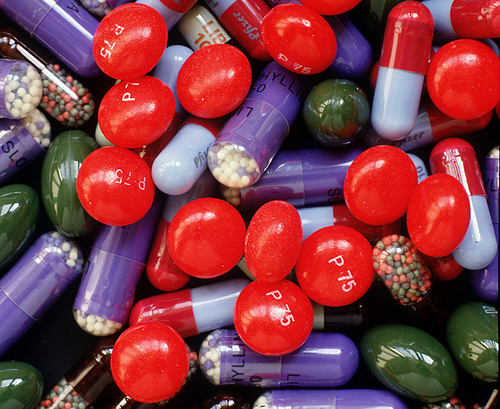Nearly 5 billion dollars.
That’s how much pharmaceutical company Merck paid to people and families who claimed the painkiller Vioxx harmed them or their loved ones. In one of the largest civil lawsuit settlements in recent history, the Vioxx manufacturer in 2007 agreed to pay $4.85 billion to people involved in the 27,000 outstanding Vioxx lawsuits against Merck. Those cases claimed that Vioxx was linked to stroke, heart attack or premature death. But while the company agreed to settle, it never admitted the drug was at fault.
Many drugs that come on the market with promise are advertised to the hilt and taken by thousands or millions of people around the world — and then either quietly (or with a big splash, as with Vioxx) disappear. Why? Here are four reasons:
1. Clinical trials aren’t as big as you think, explains drug safety expert Glen Schumock, PharmD, the head of the department of pharmacy systems, outcomes and policy at the College of Pharmacy at the University of Illinois, Chicago. Some may enroll as few as 1,000 people, and while all side effects are noted, some are uncommon. “Say there’s an adverse effect in 10 out of 100,000 people, but if you only have 6,000 people in your trial, you might not see that side effect because the frequency is so rare,” says Schumock. Consider, though, when that drug is given to 1,000,000 people — that means 10,000 people will have that “rare” side effect. (See our blog, “Do Rare Side Effects Happen?”)
2.”Real world” use of a drug differs, sometimes dramatically, from what goes on in a clinical trial. People selected to take part in a trial “typically have to meet some kind of criteria that is designed to give the drug the best chance to work,” says Schumock. Trial subjects may not be as sick as the average patient, are not taking other medications, and don’t have other diseases. Such participants are also highly monitored, typically seeing a medical professional every couple of weeks. Clinical trials are controlled environments. The real world, well, isn’t.
3. Time plays a role. Once a medication is approved by the FDA, patients and physicians may discover negative food or other drug interactions that didn’t occur during the trial’s timeline.
4. Off-label prescribing may bring up unexpected issues. A drug may be approved for one condition or population, but physicians are free to prescribe it for other uses or people, including children or the elderly, says Schumock. This can be problematic: children can be more sensitive to a drug’s side effects; the elderly, who may be more likely to have kidney function problems, might be exposed to more toxicity because the drug leaves the body at a slower rate.
All this helps explain why some drugs might get pulled from the market — either thanks to legal or regulatory pressure, or voluntarily on the part of the manufacturer — but you may not always hear that a drug is no more.
This post is excerpted from Medshadow. To read more about drugs that have been pulled from the market, click here.











What do we do about the drugs that are pulled, not because of side effects, but because they can no longer be sold at tremendous markups? The drugs are still profitable to manufacture and sell, just not in the hundreds or thousands of percent profits they once brought in. Or, there is just a small audience who needs this drug, meaning only one or two manufacturers may retain the information on how to make it, and they refuse to either part with the information, or manufacture the drug themselves.
…this is what infuriates me when Big Pharma gripes about R & D costs (which include clinical trials) as the reason why they have to charge so much here in the US. This only makes them look all that more greedy for profit if they are “fast tracking” medications through the trial phase to get them approved.
I joked once that should Hollywood ever do a remake of “The Graduate” (which wouldn’t surprise me) they need to change the “one word” said to Hoffman’s character at the party from “Plastics” to “Pharmaceuticals” as that is where the big money is today.